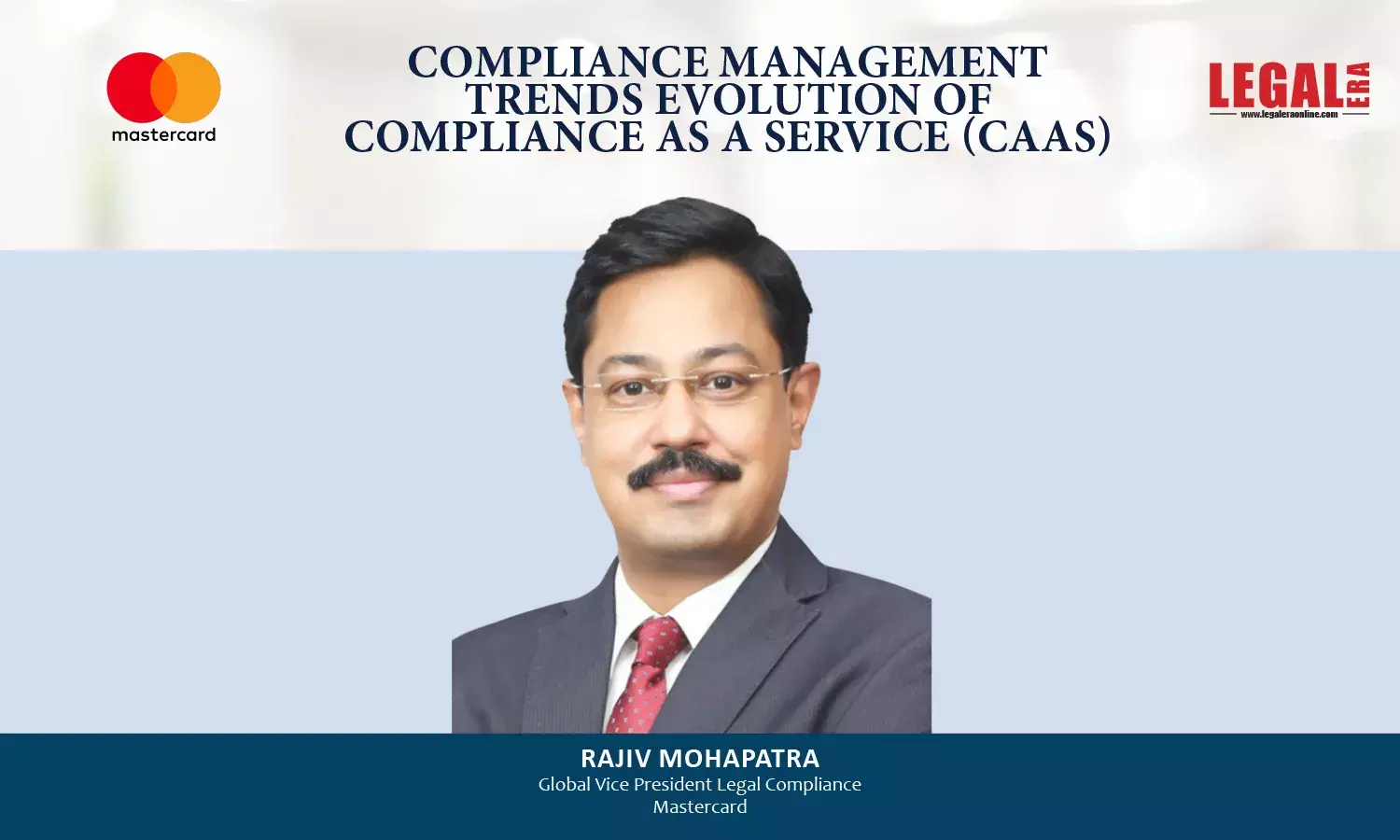Compliance Management Trends Evolution Of Compliance As A Service (CaaS)

Compliance Management Trends Evolution Of Compliance As A Service (CaaS)
With the evolution of compliance tools, systems, processes, and AI, implementing CaaS can significantly streamline the organization’s legal, regulatory and statutory compliance processes, reduce risks, and allow businesses to focus on their core business activities
Compliance is no more restricted to complying with laws, rules, regulations i.e., largely legal compliance. It has now expanded beyond the set of procedures and best practices applied to ensure that an organization (irrespective of its size, structure and geo-location) complies with legal, statutory and/or regulatory frameworks. This expanded and newfound meaning includes monitoring the effects related to ethics, ESG, data security, AI governance risk and the organization’s core values, to strive and do better in giving back to the society at large in each geography or country of its current or future operations. For example, ensuring ethical sourcing of products, good governance of business processes, securing data confidentiality, financial transparency, monitoring and managing geo-political conflicts and ensuring prompt action to avoid penalties or sanctions.
Highly regulated industries such as pharmaceutical, manufacturing and financial due to the extensive laws and regulations that the organizations in these sectors must comply with, historically have very well-established compliance infrastructure. Nowadays, the demand for compliance structure has expanded across various sectors and industries due to globalization.
Key Trends
The future of compliance management will transform practices and shift focus to new evolving areas. The organizations which are diligent and focus on ensuring strict compliances will incorporate them into their business strategy to meet their regulatory requirements and avoid unfavorable outcomes.
1. ESG compliance and reporting on ESG parameters is becoming a compulsory and obligatory compliance for organizations rather than voluntary.
2. Mandates by regulators across the world and demands from shareholders are ensuring greater transparency and accountability across industries in monitoring and managing risks including their timely reporting to address any systemic issues.
3. Evolution of AI regulations and data privacy requirements will force organizations to adopt new processes for AI and data security risks’ management and governance.
So, the organizations with proactive compliance - of data governance, leveraging AI technology, for efficiencies and automated processes to manage their compliances will be successful in navigating the evolving and additional compliance burdens. To manage the evolving compliances proactively, the organizations, need experts with knowledge of the market and the industry. To deal with the increasing burden of different types of legal, statutory, regulatory etc. compliances, the Compliance as a Service has evolved as a niche area of practice to monitor and manage the risks.

What is Compliance as a Service (CaaS)?
Compliance as a Service (CaaS) is a service that allows organizations to outsource either internally within the organization or externally to another service provider and automate their legal, statutory and regulatory compliances.
Compliance as a Service (CaaS) is a service that allows organizations to outsource either internally within the organization or externally to another service provider and automate their legal, statutory and regulatory compliances. Organizations depending on their size, structure and regulation either outsource to their group companies e.g., GCC – global capability centres, CoE – centre of excellence units operating within the same group or externally to companies/service providers that specialize in and have developed expertise in providing such services and assisting organizations in maintaining adherence to legal, statutory and regulatory requirements critical to their industry.
The Compliance provider (whether internal or external) is responsible for monitoring, managing and ensuring that the organization complies with all the applicable laws, rules, regulations and norms applicable to its industry. The aim is to reduce the workload for organizations, minimize economic costs, and, above all, simplify compliance requirements.
With the advent of AI technology, compliance services have been integrated into business operations of an organization at each step through digitization and automation. Irrespective of CaaS solutions being provided internally or externally by a service provider, implementing CaaS solutions requires a certain level of digitalization for organizations and comes with additional one-time cost. However, the process optimization results in cost savings from improved efficiency in the long term, and the advantages are worth considering CaaS as part of a broader digital strategy.
Advantages of CaaS
Compliance as a Service (CaaS) offers several advantages.
Specifically for businesses considering managing their legal and regulatory obligations efficiently without disruption to their core operations, the key benefits are -
1. Cost Efficiency: CaaS reduces the need for significant upfront investments in compliance infrastructure and personnel. By outsourcing compliance management, businesses can save on costs associated with hiring and training specialized staff.
2. Automation and Efficiency: CaaS leverages automation to handle complex compliance-related tasks such as record keeping, reporting, and documentation. This reduces the risk of human error and ensures that compliance processes are carried out efficiently.
3. Scalability: CaaS solutions are typically designed keeping in mind the nature of the business and to scale with it. With the organizational/business growth, the compliance services can be adjusted to meet increasing legal and regulatory demands without requiring additional resources.
4. Expert Support: CaaS providers (particularly external service providers) offer access to compliance experts with up-to-date industry knowledge for a fraction of the cost of traditional compliance.
5. Real-Time Monitoring: With CaaS, businesses can benefit from real-time monitoring and updates. This ensures that they stay up to date with the latest legal and regulatory changes and can quickly adapt to new requirements.
6. Risk Mitigation: By outsourcing compliance to specialized providers, businesses can reduce the risk of non-compliance, which can lead to significant fines and penalties.
7. Focus on Core Activities: By handling the intricacies of compliance, CaaS allows businesses to focus on their core activities and strategic goals without being caught up by legal, statutory or regulatory changes and complexities.
Things to keep in mind for the CaaS Implementation Process
Implementing Compliance as a Service (CaaS) involves several key steps to ensure a smooth transition and effective integration into any business operation. The process requires to:
Assess and Identify
Identify specific compliance requirements based on industry regulations and business operations and develop a detailed implementation plan, with timelines, cost, milestones, and resource allocation.
Based on the requirements, expertise and cost efficiency, a CaaS provider needs to be identified either internally from within the organization i.e., a CoE or GCC or an external service provider with a proven track record.
Customize
Customize the services and CaaS program as per specific compliance requirements, integrate it with the existing IT infrastructure and business processes for better results.
Test
A pilot test of the CaaS solution in a controlled environment is required before complete deployment and feedback from the pilot phase must be incorporated into the implementation plan to make necessary adjustments.
Deploy
The CaaS solution depending on its complexity should be decided to be deployed across the organization in phases or at once.
Monitor and Upgrade
Assurance monitoring of the deployment must be carried out to ensure compliance with evolving regulations and the service should be regularly updated and upgraded.
With the evolution of compliance tools, systems, processes, and AI, implementing CaaS can significantly streamline the organization’s legal, regulatory and statutory compliance processes, reduce risks, and allow businesses to focus on their core business activities and the internal compliance teams of an organization to work along with business in managing risks more proactively.
Disclaimer – The views expressed in this article are the personal views of the author and are purely informative in nature.

